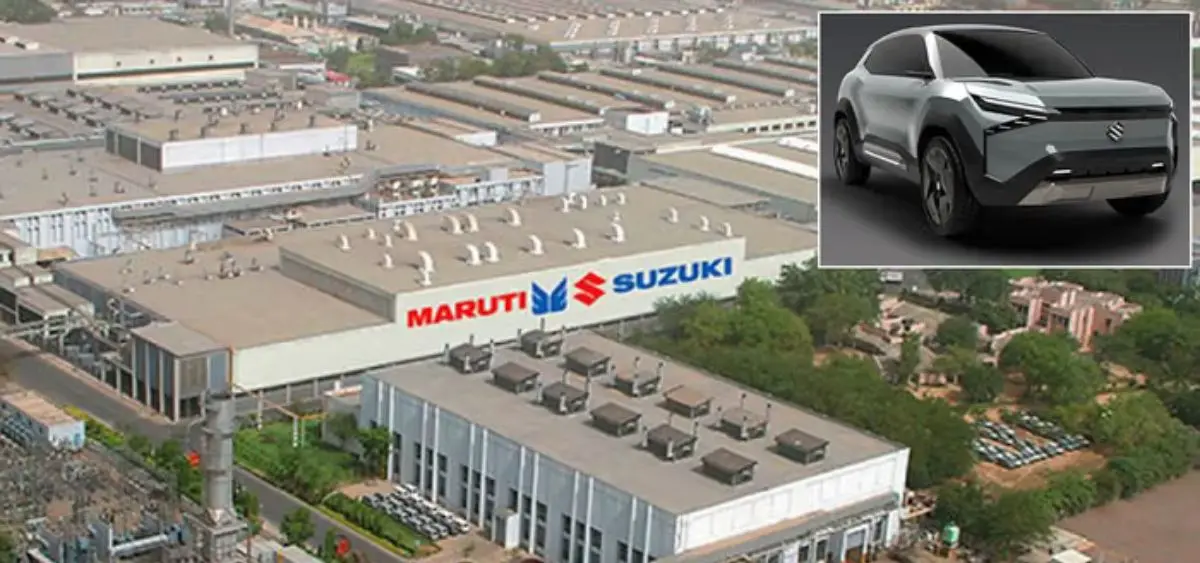Maruti Suzuki India is taking a significant step towards flexible manufacturing by enabling its plants to produce both electric vehicles (EVs) and petrol-powered cars on the same assembly line. This move reflects the company’s strategic approach to meet evolving market demands while preparing for a greener, multi-powertrain future.
The company is set to enhance its production capacity, targeting an additional 2 million units by 2030-31 and introducing 28 different models in the market. A key part of this expansion is a new facility with an annual capacity of 250,000 units, initially producing the popular compact SUV, Brezza. In addition, Maruti’s subsidiary, Suzuki Motor Gujarat, already operates a plant with a 750,000 units per year capacity.
A major highlight of this flexible manufacturing strategy is the production of Maruti Suzuki’s first all-electric SUV, the e-Vitara, which began in August 2025 at the Gujarat plant. This plant’s third production line is capable of assembling both EVs and internal combustion engine (ICE) vehicles, making it a flagship example of Maruti’s adaptability.

EV production, however, comes with unique challenges. According to Rahul Bharti, Senior Executive Officer (Corporate Affairs) at Maruti Suzuki, electric vehicles are heavier due to battery weight and require stronger body structures, necessitating changes in production processes. He also noted that EVs are inherently less profitable than traditional petrol or diesel vehicles, highlighting the importance of government incentives and lower GST rates to support this segment.
Interestingly, Maruti is prioritizing exports for the e-Vitara, targeting over 100 countries, including Europe and Japan. This approach allows the company to enter mature EV markets, benefit from economies of scale, and enhance pricing power. The domestic launch is planned shortly after the export debut, diverging from competitors like Tata Motors and Mahindra, which focus primarily on the Indian market first.
Beyond EVs, Maruti Suzuki is pursuing a comprehensive decarbonization strategy that includes hybrid, CNG, and ethanol flex-fuel technologies. Discussions with the government regarding the upcoming CAFE-III emission norms are ongoing, with policy announcements expected soon.
By integrating flexible production lines, focusing on multi-powertrain solutions, and strategically prioritizing exports, Maruti Suzuki is positioning itself as a forward-looking automaker capable of navigating the transition from conventional ICE vehicles to electric mobility, while still catering to diverse market needs.
Related Articles:-

